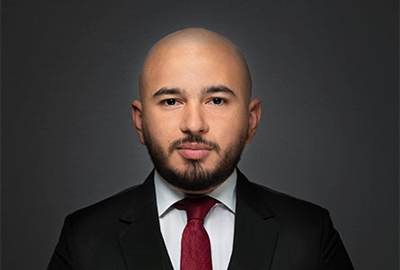Several of the key phrases within the definition of mental health also are key attributes for a successful professional, such as a state in which an individual "realizes his or her own abilities," "can cope with the normal stresses of life," "can work productively," and is "able to make a contribution." Indeed, these attributes often are basics that are included in job descriptions and would be necessary in any working professional.
Mental health is an increasingly important topic within the work environment because poor working conditions and organizational issues are factors that contribute to poor mental health. These two factors are particularly present within the internal audit function and for internal audit personnel, because of:
- Internal audit's continuing struggle for a "place at the table" and for management support. The audit function attempts, with increased vigor to be seen as an advocate and an advisor of management rather than a policeman or a watchdog, which can lead to poor working conditions in organizations with low internal audit function maturity.
- Organizational issues, ironically. The nature of the internal audit function is to address organizational issues, if any are present, yet when organizational issues contribute to poor mental health, it places auditors at the forefront of workers at risk within the organization.
The responsibility for taking care of the employees' well-being and mental health is two-sided — both from the employee's as well as the organization's sides. Here are some things internal auditors can do to take care of their mental health.
1. Connect With People
In one's personal life, having a social circle for support is important to human beings, who are social creatures at their core. This support can involve familial relationships, friendships, and even networking with colleagues and fellow professionals.
2. Be Physically Active
While going to the gym can be time-demanding, expensive, or, for me personally, just plain boring, there are always alternatives for physical activity that suit all tastes and fitness levels. These can range from a walk in the park, to cycling through your local trails, to climbing mountains at home and abroad on your holidays. Being active also can foster social connections because these activities can be enjoyed with others in your community.
3. Keep Learning
This aspect will give you a purpose and direction in your life, a stronger feeling of accomplishment and being goal-oriented, as well as help develop your career. There are many learning options, such as obtaining your Certified Internal Auditor or Certification in Risk Management Assurance from The IIA.
There also are other options that do not tie directly into your career but would also be helpful. For example, you can sign up for physical activity classes or camps to stay physically active, as well as participate in such classes with members of your community to stay social. You often will find that the skills you develop in these classes are transferable to your internal audit department. The next time someone compliments your great teamwork, you can invite them to your basketball classes or practice where you developed your teamwork skills!
4. Take Care of Your Physical Health
It's an old adage, but it remains true that a healthy mind resides in a healthy body. Making sure you are eating right and enjoying nutritious meals, drinking plenty of water — I assure you, no matter how much water you are drinking, it is not enough, so drink more water — avoiding smoking and unhealthy habits, and getting enough sleep are all factors that help you be a healthier person in both body and mind. You will notice that being healthy ties in with being active. This list might sound long, but most items are interrelated, and you will find yourself ticking several items in one activity most of the time.
5. Give Back to the Community
Dedicate some of your personal time to volunteer in activities to help others or to help the planet. Volunteer opportunities are available just about everywhere, whether it is teaching an extracurricular class at your old school in the afternoon, participating in beach clean-ups and environmental activities, or just helping your neighbors. Giving back feels good, and you will notice, not coincidentally, that giving back ties into being social, active, and healthier. It could even lead to new learning opportunities, creating a huge, compounded positive effect on your mental health.
Internal auditors deal firsthand with organizational issues both on a larger scale for the organization as a whole as well as on a more micro scale for the internal audit department. The function, itself, is based on dealing with these issues, which are growth and development opportunities. So, it is important for us to internally foster a positive mental health environment to maintain our positive outlook and be able to make a change for the better and be role models for our fellow organizational members.
Hassan Khayal, CIA, CRMA, CFE, is an internal audit professional based in the United Arab Emirates and a 2020 Internal Auditor Emerging Leader.



